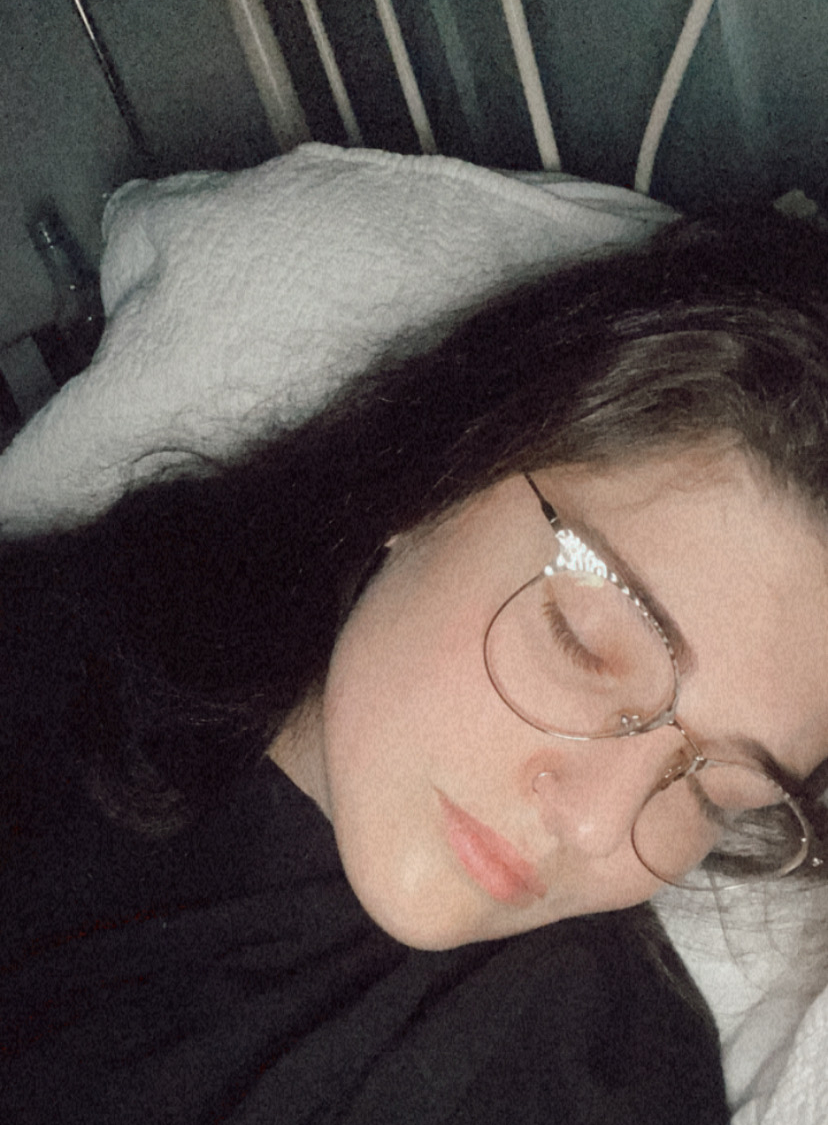Let’s talk about invisible chronic illness and love

A few weeks after my 19th birthday, I woke up feeling fluey. 3 months later, I found myself in a GP’s office desperate for answers about why I had been almost completely bed bound for that time. Their prescription was that widely known medication for fixing paralysis… nasal spray. Yeah, I think we can guess that didn’t work.
It’s been 6 and a half years since that first morning and I’ve never been the same – in and out of being bed bound or housebound with debilitating fatigue and widespread pain (I’ll spare you the full list of symptoms!).
I’ve lost friends who got fed up with me not being able to make gigs or parties. I’ve had a partner frustrated because they want to be my boyfriend not my carer. I’ve had doctor’s ask me, ‘Doesn’t a young woman like you want to get out more?’ and a constant stream of people saying ‘but you look so well!’ And the thing is, they’re right.
Apart from the light that’s gone from my eyes, I don’t ‘look’ disabled. For that reason, I’ve been gaslit and I’ve gaslit myself at times. I’ve cried over perfectly healthy blood results and scans just because I was desperate to have some proof that I was as sick as I felt. I’ve felt so alone.
And, yet, I’m not alone. There are around 14 million disabled people in the UK. 93% of us don’t use a wheelchair and up to 70% have invisible conditions. In what can be such an isolating place, I wanted sufferers and carers to feel seen. And that’s why I wrote ‘Chronic’.
What is ‘Chronic’?
‘Chronic’ is a short film that follows the story of a young couple, Sadie and Rob, who move in together but Sadie’s chronic illness complicates their plans and begins to govern their relationship. As the couple struggle to come to terms with Sadie’s inability to brush her own teeth or have sex, it becomes harder to know how to hold onto their relationship, and each other.
Our director, Milly Garnier, puts it perfectly when she says that ‘it’s necessary to go further than talking generally about chronic illness and delve into the individual experience. That way, we can illustrate the day-to-day monotony and the excruciating frustration.’
‘Chronic’ isn’t about one specific invisible disability. It’s a story that many will relate to across the board of invisible illnesses – autoimmune diseases, connective tissue disorders, mental health conditions, cancer, the list goes on.
Why is this story so critical now?
Only 2.5% of TV and film characters are disabled but over 15% of the world’s population are. Representation in storytelling is critical for social change and it’s time to break the stigma surrounding invisible disability. The real heart of ‘Chronic’ is bringing support in shared experience – being seen – as well as educating others. This has only become more essential in a world with COVID-19. Around 10% of COVID-19 patients develop lasting symptoms like fatigue, headaches and widespread pain. Dr William Weir, a consultant in infectious diseases, states that ‘there are so many similarities between long Covid and ME/CFS’ (a mostly invisible condition). Many other patients are also being diagnosed with POTS (postural tachycardia syndrome).
COVID-19 induced lockdowns and restrictions have shown able-bodied Brits just how hard it is to be housebound even without chronic pain and fatigue. As comedian Miranda Hart says, ‘chronic illness is lockdown in many, many ways’. Now is the time to create empathy and awareness around this struggle for the chronically ill.
Words of wisdom for the chronically ill
1. Know your worth. Losing relationships because of your illness says a lot more about them than it does about you. It doesn’t make you less worthy of love. Don’t go into dating on the backfoot. Someone isn’t incredible just because they’re happy to date a disabled person. You deserve a lot more than that. Date someone who sees you and your health condition as bringing more beauty to their life rather than limitations.
2. Ask for what you need. Let go of any beliefs that tell you you’re not allowed to ask for support.
3. Communication is key. Find visual or metaphorical ways to describe your symptoms on a specific day to loved ones. Maybe consider using colours or the spoon theory.
Words of wisdom for people who love a chronically ill person
1. Bin ableist phrases. Replace ‘get well soon’ with ‘I hope you have a lower symptom day soon’. Throw out phrases like ‘you can’t be disabled, you’re too young/ pretty’ or ‘I just don’t see you as disabled’. Oh yeah and yoga won’t cure us.
2. Still invite them. Inviting chronically ill people even if they can’t attend makes them know you haven’t given up on them.
3. Don’t take it personally. Pain can change people, a bit like being hangry but (literally) on steroids. When someone’s flaring, they might become angry or irritable. Have patience.
4. Educate yourself. Ask your loved one questions but don’t rely on them to do all the work. Research their specific condition, watch documentaries like ‘Unrest’ on Netflix or follow informative social media accounts.
The team are raising money to make Chronic happen, please consider making a donation at https://www.indiegogo.com/projects/chronic#/. 5% of every donation will go to the ME Association. The fundraiser closes on 14th December. Follow them on Instagram @chronicfilm and Twitter @chronic_film.








